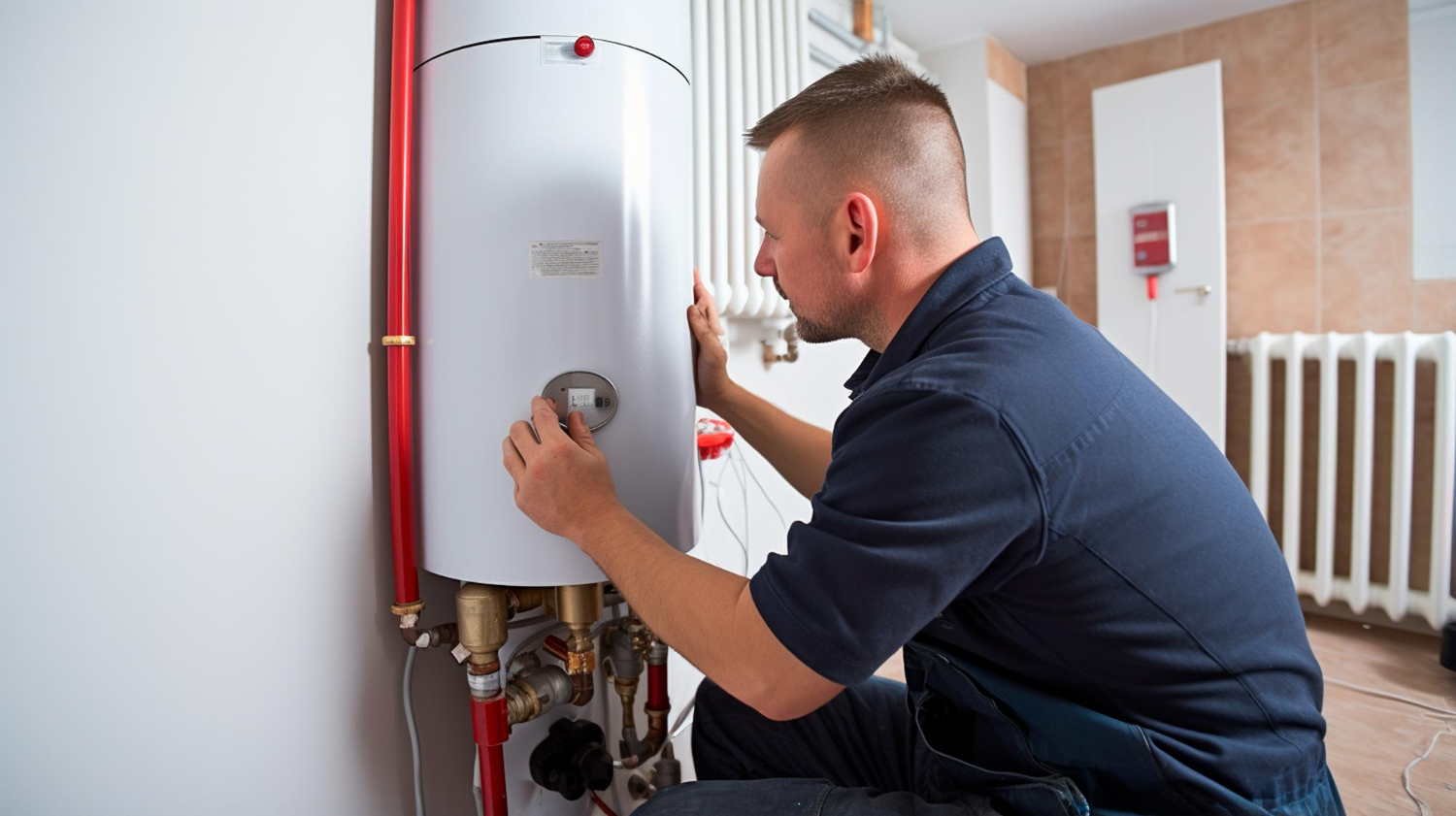$45 Drain Cleaning Special
Schedule OnlineDrain Cleaning Special
4.8 / 5 Ratings based on 1384 reviews
Local Plumbers, Local Reviews
$45 Drain Cleaning Special
Schedule OnlineDrain Cleaning Special
4.8 / 5 Ratings based on 1384 reviews
Local Plumbers, Local Reviews

Most homeowners don’t realize that the quality of their water can have a major impact on the lifespan of their water heater. Hard water is a common culprit behind premature water heater problems. Over time, these minerals can build up inside your unit, causing it to work harder and less efficiently. If you’ve ever noticed cloudy water, white residue on your faucets, or your water heater running louder than usual, hard water might be to blame.
In this blog post, our professionals from Urgent Rooter will explain how hard water affects your water heater, the signs of damage, and what you can do to protect your investment.
When hard water flows into your water heater, it doesn’t just heat the water, it leaves behind mineral deposits. These deposits, known as limescale, form a hard layer on the heating elements and the interior of the tank. As the buildup grows thicker, your water heater has to use more energy to heat the water, leading to higher energy bills and reduced performance. Over time, the strain from this buildup can cause the tank to overheat or even crack, leading to leaks that may require immediate water heater repair or replacement from a licensed plumber in Los Angeles.
Do you hear the sound of water gurgling through your walls? Have you discovered…
Commercial plumbing plays a crucial role in maintaining operational efficiency and customer satisfaction, especially…
Copper piping has long been regarded as a staple in plumbing systems due to…
Mineral buildup acts as insulation inside your water heater tank, forcing the heating elements to work overtime just to deliver the same amount of hot water. This inefficiency means your energy consumption increases without you even realizing it. You might notice that it takes longer for your water to heat up or that the water doesn’t get as hot as it used to. These are clear signs that your system is struggling against the effects of hard water. Ignoring these warning signs can lead to more serious problems that a plumbing repair service will eventually need to fix.
Hard water doesn’t just cause scaling, it can also accelerate corrosion. The mineral deposits inside your tank can create hotspots that eat away at the metal over time. Once corrosion begins, it’s only a matter of time before leaks appear. A small leak might seem harmless at first, but it can quickly turn into a bigger problem that damages floors or nearby walls. In many cases, if the corrosion is too advanced, water heater replacement becomes the only safe and cost-effective solution. A professional plumber can assess whether repairs are possible or if a new installation is the better long-term option.
A well-maintained water heater can last 10 to 15 years, but hard water can cut that lifespan in half. The constant exposure to mineral buildup forces internal components to wear out faster, leading to frequent repairs and expensive part replacements. If you find yourself calling a plumbing repair service every few months for issues like inconsistent water temperature or sediment clogging, hard water is likely the root cause. Over time, these repetitive repairs add up, making a full water heater replacement a more practical investment.
Fortunately, there are effective ways to minimize hard water damage. Installing a water softener is one of the best solutions. A water softener removes calcium and magnesium from your water supply before it reaches your water heater, drastically reducing mineral buildup. Regular flushing of your water heater tank is another essential step. By draining the tank once or twice a year, you can remove sediment and improve heating efficiency. It’s also wise to schedule routine inspections with a trusted plumber who can spot early signs of scaling or corrosion before they become serious issues.
Your water heater is one of the most important appliances in your home, and protecting it from hard water is key to keeping it running efficiently. Regular maintenance, professional inspections, and a reliable water softening system can make a big difference in extending its lifespan. When you take proactive steps to manage hard water, you’ll save money on energy bills, prevent unnecessary repairs, and avoid the stress of an unexpected breakdown. If you suspect hard water is affecting your water heater, contact a qualified plumber today to discuss the best solutions for your home and keep your hot water flowing reliably for years to come.
Every home seems to have at least one toilet that behaves differently from all the others. One flush might be powerful and decisive, while another feels weak, slow, or unpredictable. This odd occurrence can spark daily…
Read MoreRecurring drain issues can turn everyday routines into ongoing frustrations, especially after repeated clogs, slow drains, or unexplained backups continue to return.…
Read MoreDesign choices in a home often feel cosmetic, but faucets and fixtures play a much larger role than simple decoration. The finishes,…
Read More